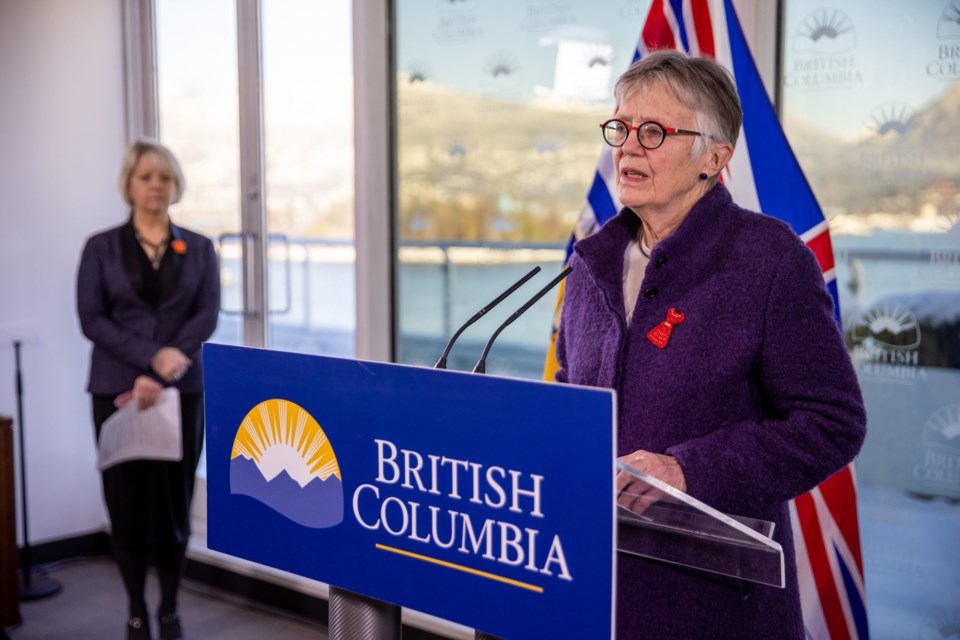British Columbians nervously waiting for their turn to get vaccinated, parents worried about whether their kids should return to in-person classes, and much of the country preparing for another COVID-19 lockdown – it looks like 2022 is going to start pretty much exactly like 2021.
That sense of deja vu is seemingly everywhere, as we turn over the calendar to start the new year.
And in the short term, it doesn’t look like much is going to change.
Hundreds of thousands of British Columbians are waiting for their turn to get a booster shot, anxious for more protection to combat the rapidly-spreading Omicron variant.
BC didn’t even have a functional online booking system for vaccines this time in 2021, but it had started giving shots to the most vulnerable, and would go on to launch a telephone booking system in March – which promptly crashed due to overwhelming demand, leaving many people furious.
Fast forward to 2022 and frustration levels are high again, as hundreds of thousands of British Columbians struggle to understand why they aren’t being invited to book booster doses, despite being eligible under provincial rules.
The problem this time appears to lie with BC’s online vaccine booking system, which worked extraordinarily well in helping 4.5 million people get vaccinated in 2021 but now seems to be buckling under the strain of third doses, staffing shortages, and clinic restrictions.
The province is struggling with a backlog of 800,000 people under the age of 60 who have reached the six-month mark for a booster dose. That’s been compounded by BC’s stubborn refusal to accelerate its booster rollout plans – even as the rest of the country was accelerating theirs – until after Christmas.
The result is a mess.
Many people at 6.5 months, approaching seven months, since their second dose are still not invited to book, while others jump the queue with appointments scheduled before they even actually reach their six month mark.
It’s not clear if there’s a glitch in the system, or if even the best technology has been flummoxed by the province’s confusing policies, overwhelming demand, clinic shortages, staffing problems and other issues.
If you haven’t got a notification from the province yet, do yourself a favour: Call 1-888-838-2323 and sort it out directly, rather than waiting for an invite that may never come.
Booster doses aside, the return to school after Christmas break in 2022 is also eerily similar to 2021.
Last year, parents weren’t sure whether a relatively new mask mandate inside schools was enough to protect their kids returning to in-person classrooms after the holidays.
This year, the concerns are worse given the more than 4,000 cases seen in one day on the verge of schools re-opening. Many people are openly demanding an online learning option.
Teachers (who still aren’t required to even be vaccinated) want access to better protective N95 masks, classroom ventilation and other safety measures.
Parents (who still aren’t required to vaccinate their kids) want better notification of cases, classroom ventilation, higher-quality masks and physical distancing.
Nobody particularly wants to talk about why only 38 per cent of eligible kids older than 12 are actually vaccinated, and what kind of hesitancy exists around that. It is easier, perhaps, to blame the province for not providing enough masks.
Meanwhile, Ontario and Quebec are preparing for additional lockdown measures, in similar fashion to 2021.
Quebec has put in place a curfew between 10 pm and 5 am. When it came into effect on New Year's Eve, the province wouldn’t even allow people on the street to walk their dogs during that time. But after intense backlash, it now allows exemptions for people whose pooches need to pee.
Ontario has shut down in-restaurant dining and moved school online for at least the next two weeks, saying that even though the Omicron variant might be less severe, the province is still on track to face “catastrophic” case numbers that could overwhelm the hospital system.
BC has not followed those strict measures.
If history repeats, the province will resist the early preventative efforts seen in Ontario and elsewhere, in favour of insisting that the situation in British Columbia is entirely different. Until it isn’t. At which point it will be too late to implement the measures anyway.
Still, there remains hope that the back half of 2022 could be different from 2021.
If Omicron does infect virtually everyone, eventually, then the world may be headed from the current pandemic approach into an endemic instead, at which point we all learn to live alongside a virus that never fully goes away.
It’s not entirely clear if we’ll get there. But there’s hope. In the meantime, we turn the calendar over to a year that looks to be, in the short term at least, very much like the one we just left behind.
Rob Shaw has spent more than 13 years covering BC politics, now reporting for CHEK News and writing for The Orca. He is the co-author of the national best-selling book A Matter of Confidence, and a regular guest on CBC Radio.



